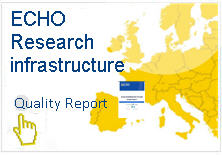ECHO INDICATORS- Getting sound indicators across languages
Select an indicator
Orthopaedic Care
INDICATOR: Hip Replacement
RATIONALE
Osteoarthritis (OA) is a prevalent condition associated with ageing. The main symptoms are pain, stiffness and functional limitation of daily life activities.
While drug therapy is effective in controlling symptoms, hip replacement is an effective alternative (superseding risks) in cases of severe pain and functional impairment.
Evidence shows consistently high systematic variation in hip replacement, which is likely associated with supply-factors, including differences in doctors´ opinions on the relative benefits of the procedure, in the underlying propensity to indicate surgery, and in payment schemes.
Within the ECHO framework, once differences in age and sex across areas are ruled out as an alternative explanation, high rates of hip replacement are considered an indicator of overexposure. Given evidence suggesting that less affluent areas are underserved, low rates of hip replacement may indicate underexposure.
DEFINITION
Hip replacement per 10,000 inhabitants aged 35 and older
Numerator: Admissions of patients aged 35 and older undergoing hip replacement. Fractures and accidents are excluded.
Denominator: Population aged 35 and older.
OBSERVATIONS
• Total hip replacements (primary plus revisions), although less specific, could be an alternative indicator of the total exposure of a population to this procedure.
• Socioeconomic gradient has been associated with variation in hip replacement data. Stratification of rates by socioeconomic quintiles is advisable.
|
|
This project is funded by the Framework 7 ECHO Project - Disclaimer | Project enquiries |





